| Rus | Eng |
On May 14, 2018 at the meeting of the Academic Council was held a aceremony for awarding Doctor of Engineering Sciences, Professor of Materials Science, Yury Gogotsi, founder and director of Drexel Nanomaterials Institute, Drexel University (USA), with the title of Honored Doctor of the National Technical University of Ukraine “Igor Sikorsky Kyiv Polytechnic Institute".
The ceremony was opened by the rector of the KPI named after Igor Sikorsky, Academician of the National Academy of Sciences of Ukraine, Mikhail Zgurovsky. He spoke about the life path, outstanding scientific achievements and the weighty personal contribution of Yuri Gogotsi to the development of scientific and educational cooperation of the KPI named after Igor Sikorsky with the Drexel Nanomaterials Institute, Drexel University (USA).
Yury Georgievich Gogotsi was born in 1961 in the Kyiv family of the famous Ukrainian scientist Professor George Gogotsi. He is related with the National Technical University of Ukraine “Igor Sikorsky Kyiv Polytechnic Institute" not only as a scientist, but also as its graduate - in 1984 Yury Gogotsi graduated from the Faculty of Engineering and Physics of the KPI, the Department of High-Temperature Materials and Powder Metallurgy, and two years later here he became a Ph.D. Candidate of Science in Physical Chemistry (he worked at the Department of Physical Chemistry of the Chemical and Technological Faculty under the supervision of Professor Vladimir Lavrenko). By the way, members of the family of Yuri Gogotsi - his father and brother, who attended the ceremony, also at various times graduated from the KPI.
However, Yuri Gogotsi worked and studied not only in the KPI. In his scientific biography there are also pages related to Frantsevich Institute of Problems of Materials Science NAS of Ukraine, where in 1995 he received a Doctor of Science (D.Sc.) degree in Materials Engineering from the National Academy of Sciences in Ukraine. Notable landmarks on his research path were also internships and work at the University of Karlsruhe (Germany), the Tokyo Technical University (Japan), the University of Oslo (Norway), the University of Tubingen (Germany) and the Illinois University in Chicago (USA). Since 2003 he is Professor of Materials Science, Honored Professor of Drexel University in Philadelphia (USA), in which he founded Nanomaterials Institute.
Professor Gogotsi and his colleagues synthesized and studied a large family of fundamentally new two-dimensional nanomaterials - MXenes (MXenes - two-dimensional carbides and nitrides of transition metals - new materials with new properties that were not known before and which can become the basis for storing electrical energy and making new electronic devices). He developed a general approach to the synthesis of porous and low-dimensional materials using selective extraction of elements / components that can be used to create nanoporous carbon, carbon nanotubes, graphene, 2D carbides, etc. In addition, Professor Gogotsi discovered and described new forms of carbon - conical and polygon crystals. Yury Gogotsi also discovered a new metastable phase of silicon. For the first time, the presence and anomalously slow progress of water in carbon nanotubes was demonstrated by electron microscopy and others.
After the Honorary Doctorate award, Professor Gogotsi addressed the audience with a short nomination lecture on the past and prospects for the development of the KPI named after Igor Sikorsky as the leading institution of higher technical education in Ukraine.
Source http://kpi.ua/2018-05-14



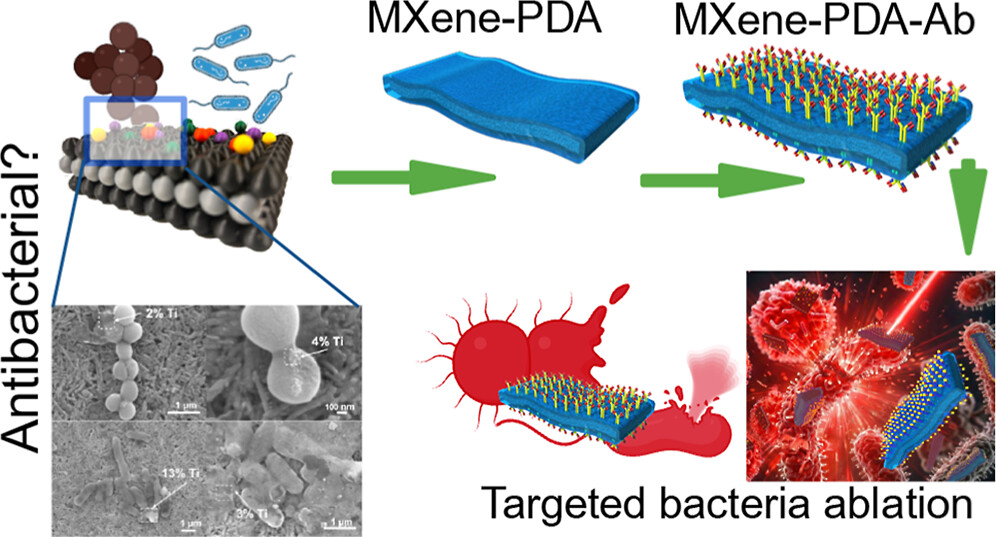 Do MXene nanosheets possess intrinsic antibacterial activity? A systematic study of high-quality Ti-, V-, and Nb-based MXenes reveals negligible inherent antimicrobial effects while highlighting their strong potential for targeted photothermal antibacterial therapy.
Do MXene nanosheets possess intrinsic antibacterial activity? A systematic study of high-quality Ti-, V-, and Nb-based MXenes reveals negligible inherent antimicrobial effects while highlighting their strong potential for targeted photothermal antibacterial therapy. Highlights
Highlights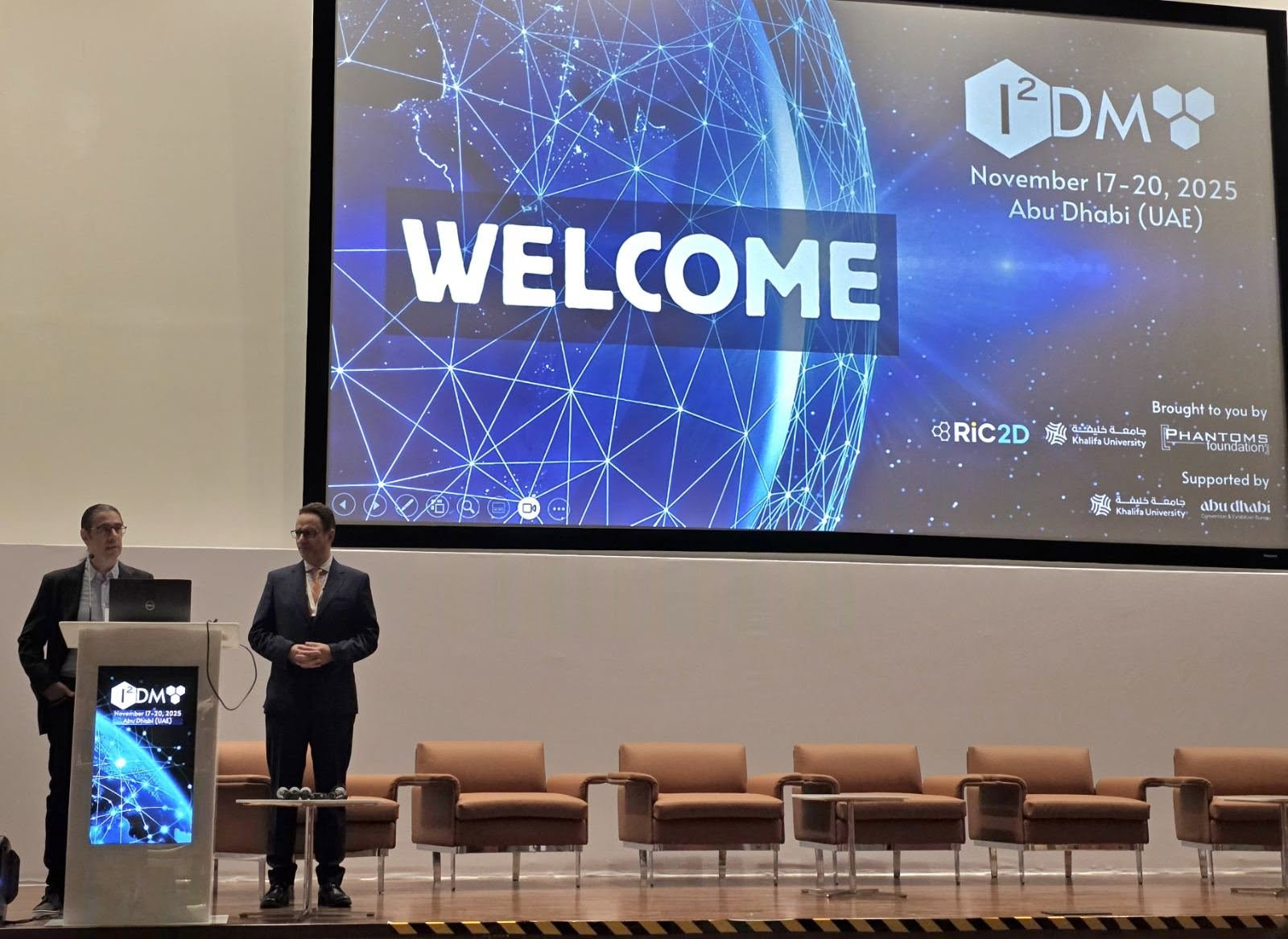 We are excited to share that our Carbon-Ukraine (Y-Carbon LLC) company participated in the I2DM Summit and Expo 2025 at Khalifa University in Abu-Dhabi! Huge thanks to Research & Innovation Center for Graphene and 2D Materials (RIC2D) for hosting such a high-level event.It was an incredible opportunity to meet brilliant researchers and innovators working on the next generation of 2D materials. The insights and energy from the summit will definitely drive new ideas in our own development.
We are excited to share that our Carbon-Ukraine (Y-Carbon LLC) company participated in the I2DM Summit and Expo 2025 at Khalifa University in Abu-Dhabi! Huge thanks to Research & Innovation Center for Graphene and 2D Materials (RIC2D) for hosting such a high-level event.It was an incredible opportunity to meet brilliant researchers and innovators working on the next generation of 2D materials. The insights and energy from the summit will definitely drive new ideas in our own development. Carbon-Ukraine team had the unique opportunity to visit XPANCEO - a Dubai-based deep tech startup company that is developing the first smart contact lenses with AR vision and health monitoring features, working on truly cutting-edge developments.
Carbon-Ukraine team had the unique opportunity to visit XPANCEO - a Dubai-based deep tech startup company that is developing the first smart contact lenses with AR vision and health monitoring features, working on truly cutting-edge developments. Our Carbon-Ukraine team (Y-Carbon LLC) are thrilled to start a new RIC2D project MX-Innovation in collaboration with Drexel University Yury Gogotsi and Khalifa University! Amazing lab tours to project collaborators from Khalifa University, great discussions, strong networking, and a wonderful platform for future collaboration.
Our Carbon-Ukraine team (Y-Carbon LLC) are thrilled to start a new RIC2D project MX-Innovation in collaboration with Drexel University Yury Gogotsi and Khalifa University! Amazing lab tours to project collaborators from Khalifa University, great discussions, strong networking, and a wonderful platform for future collaboration.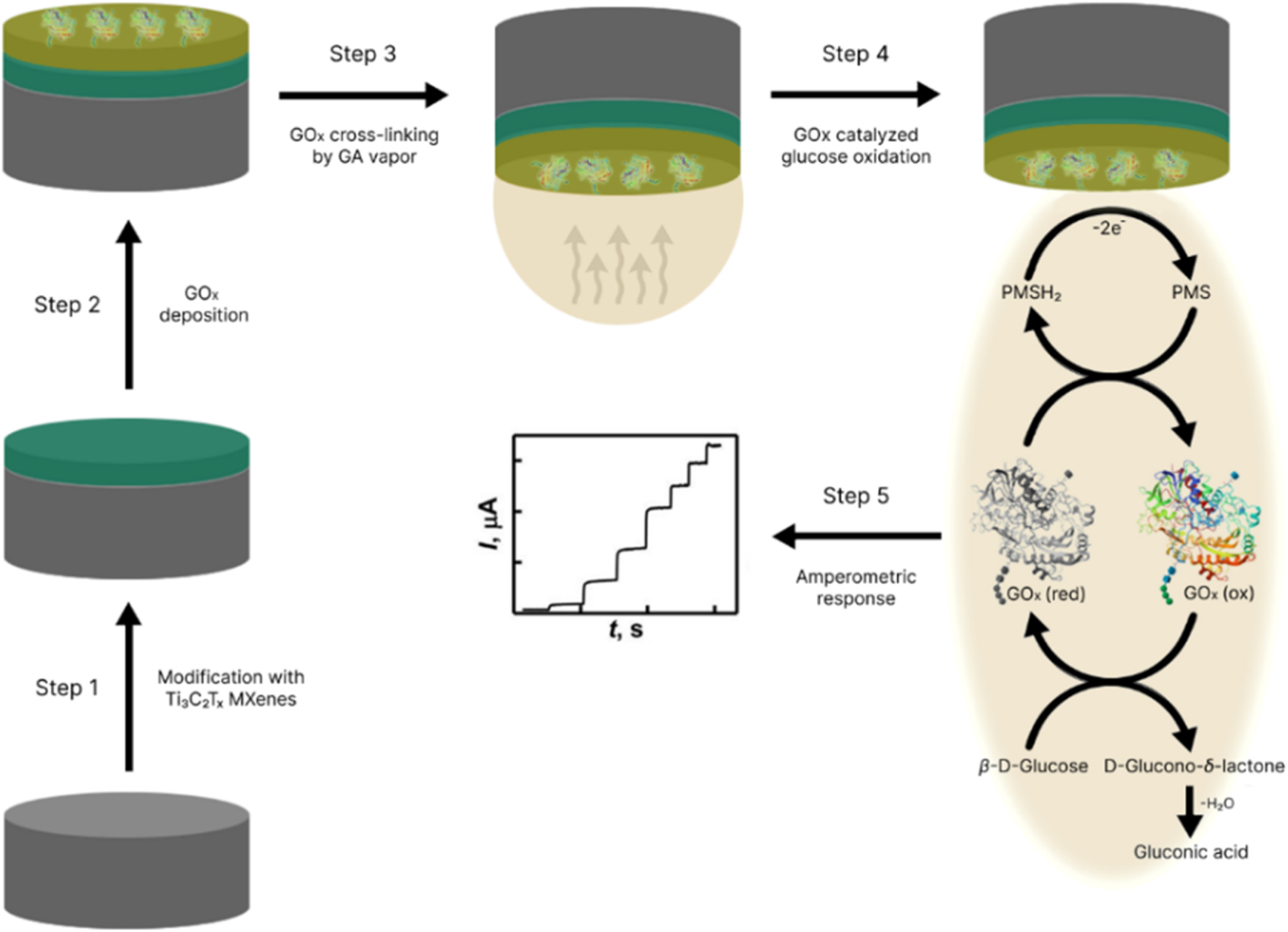
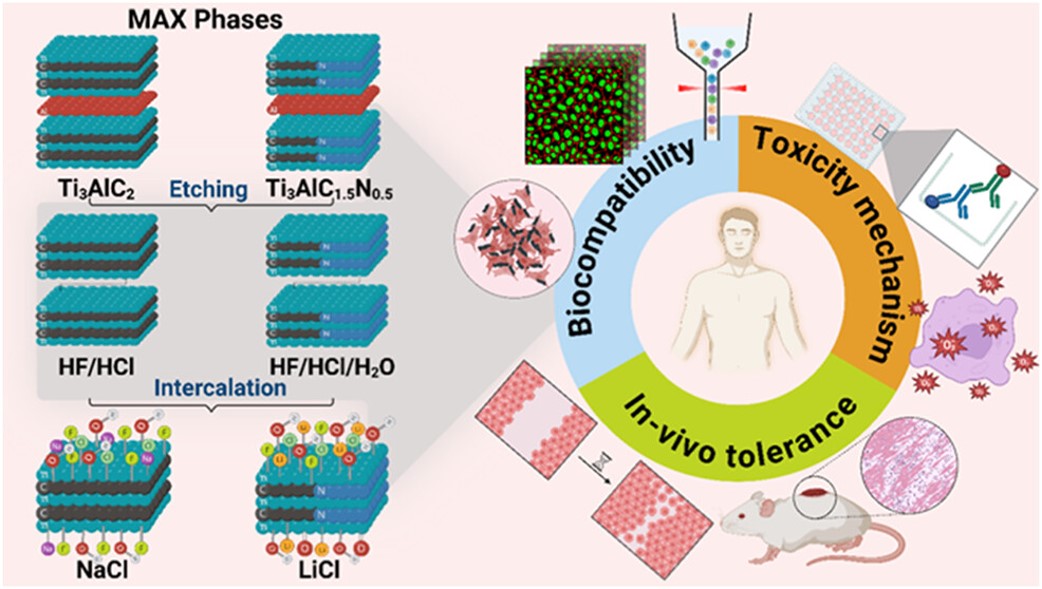 MXenes potential applications include sensors, wound healing materials, and drug delivery systems. A recent study explored how different synthesis methods affect the safety and performance of MXenes. By comparing etching conditions and intercalation strategies, researchers discovered that fine-tuning the surface chemistry of MXenes plays a crucial role in improving biocompatibility. These results provide practical guidelines for developing safer MXenes and bring the field one step closer to real biomedical applications.
MXenes potential applications include sensors, wound healing materials, and drug delivery systems. A recent study explored how different synthesis methods affect the safety and performance of MXenes. By comparing etching conditions and intercalation strategies, researchers discovered that fine-tuning the surface chemistry of MXenes plays a crucial role in improving biocompatibility. These results provide practical guidelines for developing safer MXenes and bring the field one step closer to real biomedical applications. An excellent review highlighting how MXene-based sensors can help tackle one of today’s pressing environmental challenges — heavy metal contamination. Excited to see such impactful work moving the field of environmental monitoring and sensor technology forward!
An excellent review highlighting how MXene-based sensors can help tackle one of today’s pressing environmental challenges — heavy metal contamination. Excited to see such impactful work moving the field of environmental monitoring and sensor technology forward!
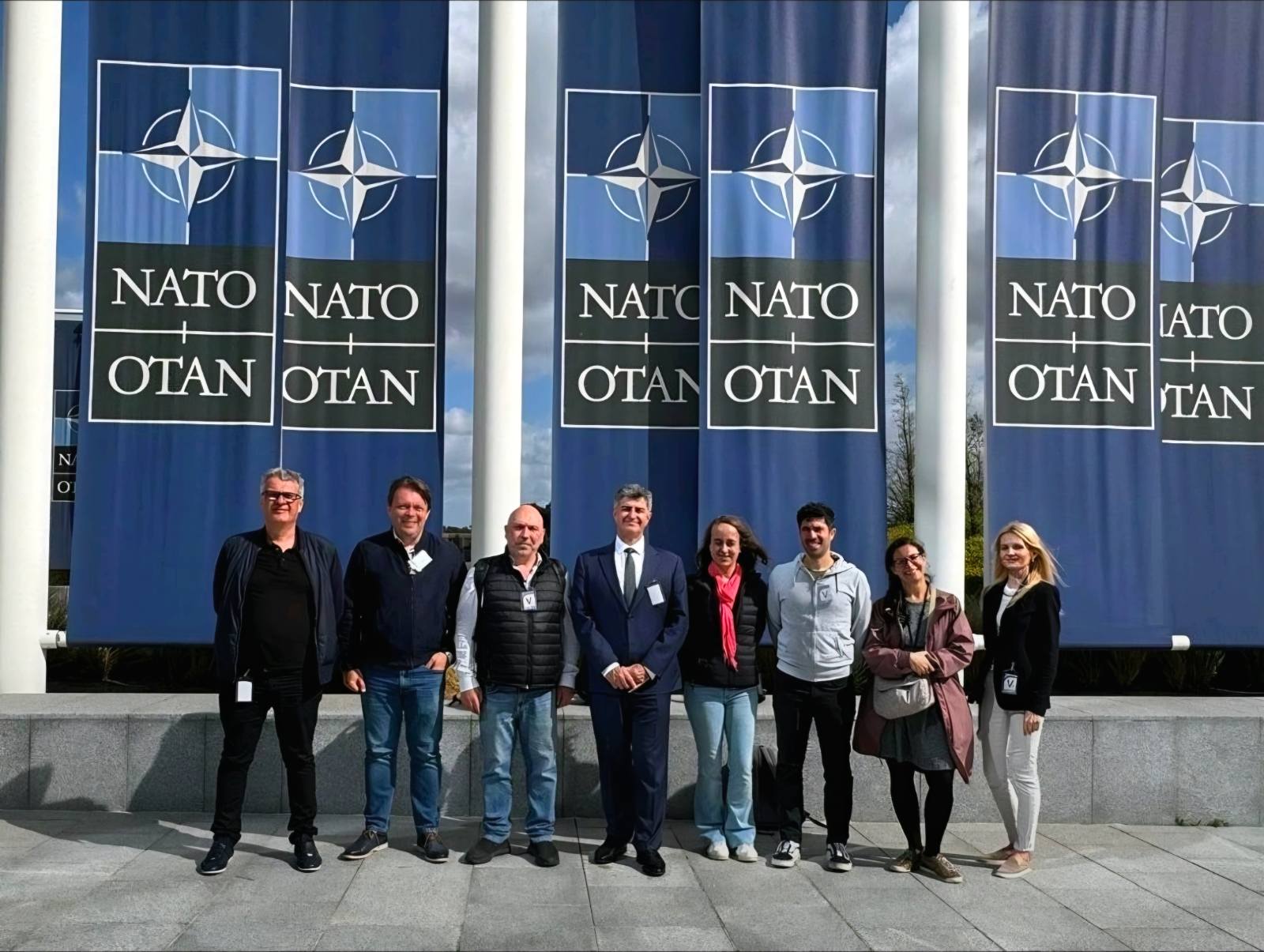 Carbon-Ukraine team was truly delighted to take part in the kickoff meeting of the ATHENA Project (Advanced Digital Engineering Methods to Design MXene-based Nanocomposites for Electro-Magnetic Interference Shielding in Space), supported by NATO through the Science for Peace and Security Programme.
Carbon-Ukraine team was truly delighted to take part in the kickoff meeting of the ATHENA Project (Advanced Digital Engineering Methods to Design MXene-based Nanocomposites for Electro-Magnetic Interference Shielding in Space), supported by NATO through the Science for Peace and Security Programme.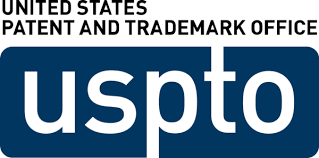 Exellent news, our joint patent application with Drexel University on highly porous MAX phase precursor for MXene synthesis published. Congratulations and thanks to all team involved!
Exellent news, our joint patent application with Drexel University on highly porous MAX phase precursor for MXene synthesis published. Congratulations and thanks to all team involved!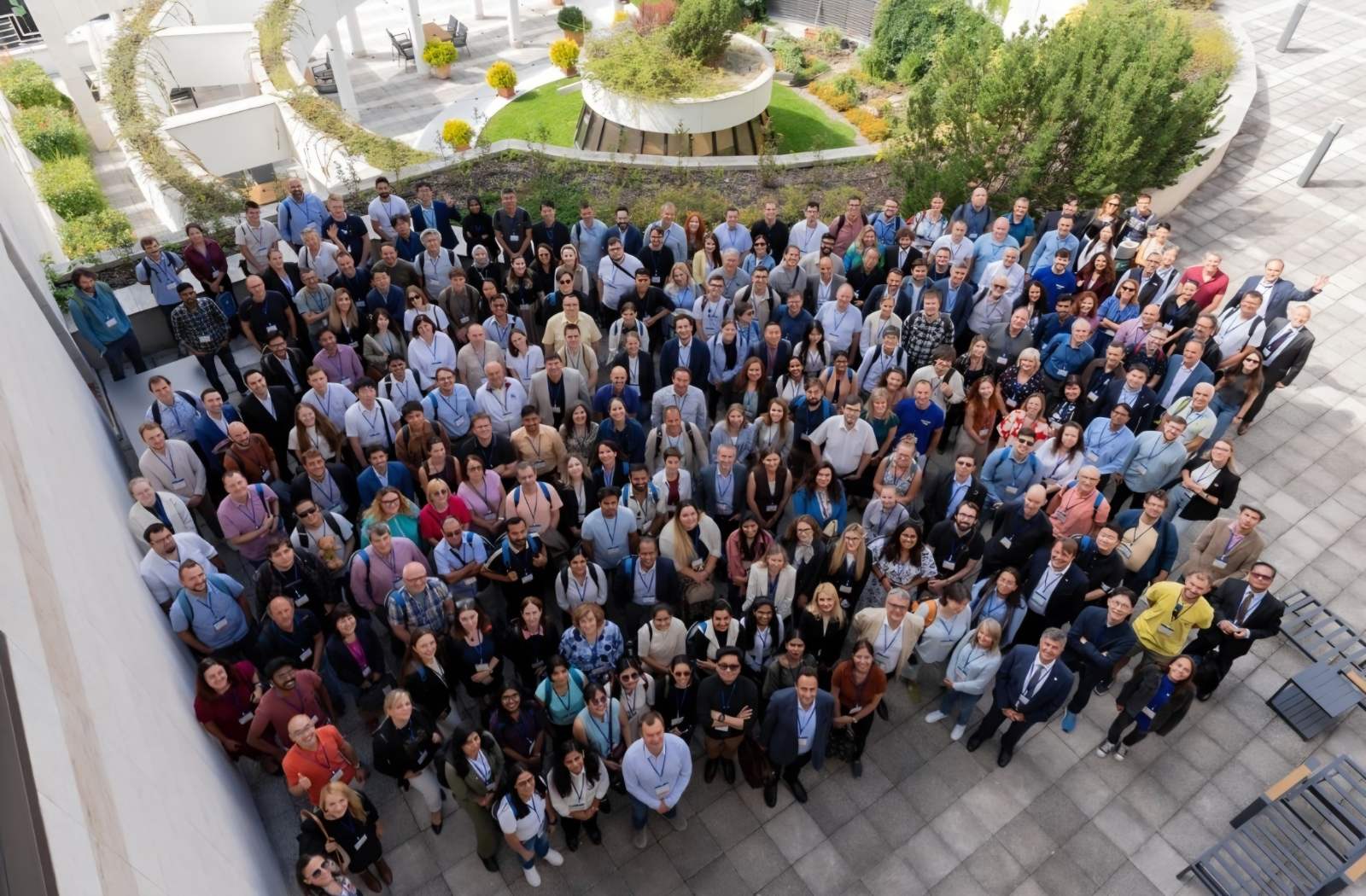 Our team was very delighted to take part in International Symposium "The MXene Frontier: Transformative Nanomaterials Shaping the Future" – the largest MXene event in Europe this year!
Our team was very delighted to take part in International Symposium "The MXene Frontier: Transformative Nanomaterials Shaping the Future" – the largest MXene event in Europe this year!  Last Call! Have you submitted your abstract for IEEE NAP-2025 yet? Join us at the International Symposium on "The MXene Frontier: Transformative Nanomaterials Shaping the Future" – the largest MXene-focused conference in Europe this year! Final Submission Deadline: May 15, 2025. Don’t miss this exclusive opportunity to showcase your research and engage with world leaders in the MXene field!
Last Call! Have you submitted your abstract for IEEE NAP-2025 yet? Join us at the International Symposium on "The MXene Frontier: Transformative Nanomaterials Shaping the Future" – the largest MXene-focused conference in Europe this year! Final Submission Deadline: May 15, 2025. Don’t miss this exclusive opportunity to showcase your research and engage with world leaders in the MXene field!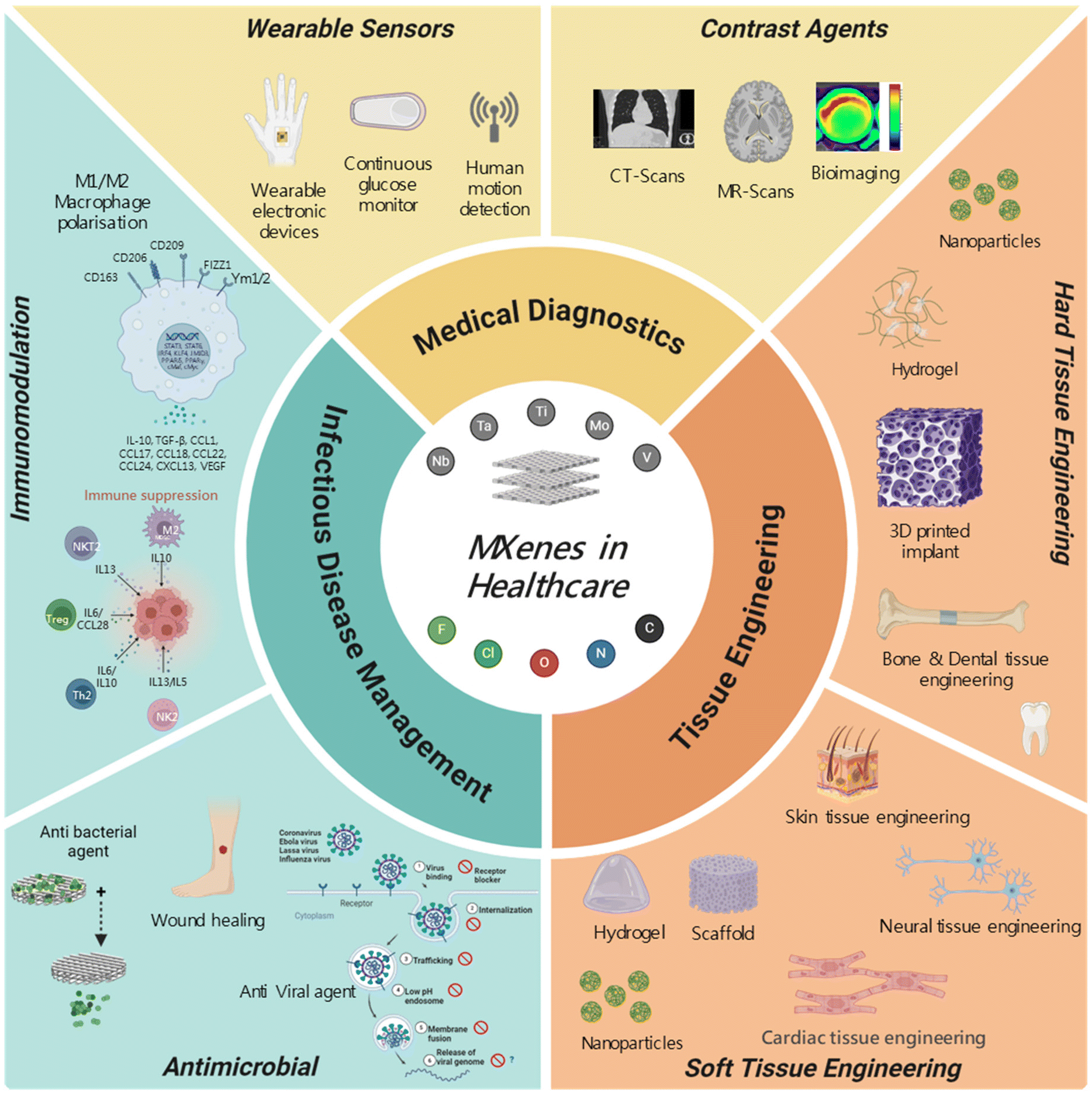 We are excited to announce the publication of latest review article on MXenes in Healthcare. This comprehensive review explores the groundbreaking role of MXenes—an emerging class of 2D materials—in revolutionizing the fields of medical diagnostics and therapeutics. Read the full article here: https://doi.org/10.1039/D4NR04853A.
We are excited to announce the publication of latest review article on MXenes in Healthcare. This comprehensive review explores the groundbreaking role of MXenes—an emerging class of 2D materials—in revolutionizing the fields of medical diagnostics and therapeutics. Read the full article here: https://doi.org/10.1039/D4NR04853A.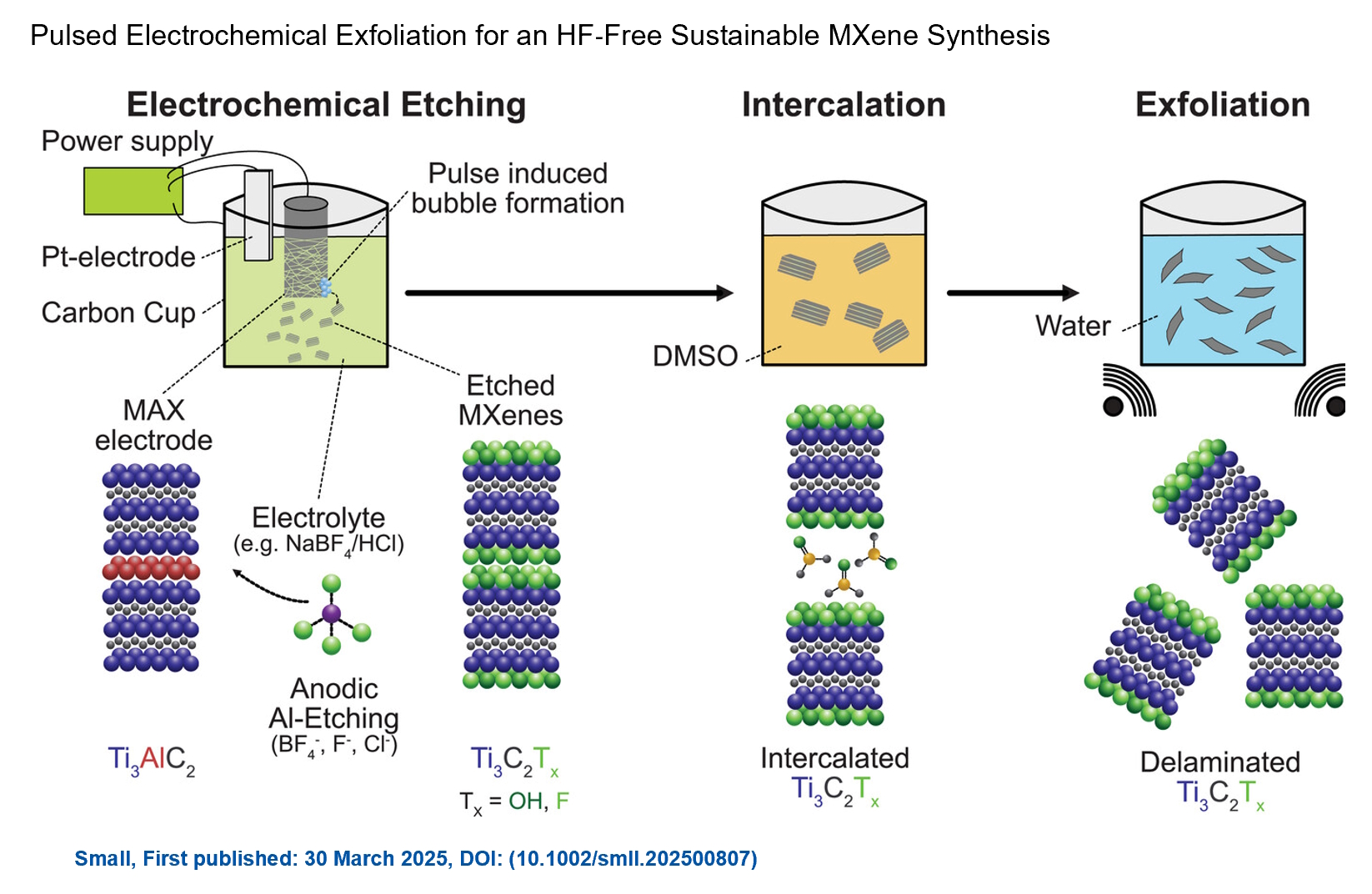 Congratulations and thank you to our collaborators from TU Wien and CEST for very interesting work and making it published! In this work, an upscalable electrochemical MXene synthesis is presented. Yields of up to 60% electrochemical MXene (EC-MXene) with no byproducts from a single exfoliation cycle are achieved.
Congratulations and thank you to our collaborators from TU Wien and CEST for very interesting work and making it published! In this work, an upscalable electrochemical MXene synthesis is presented. Yields of up to 60% electrochemical MXene (EC-MXene) with no byproducts from a single exfoliation cycle are achieved.